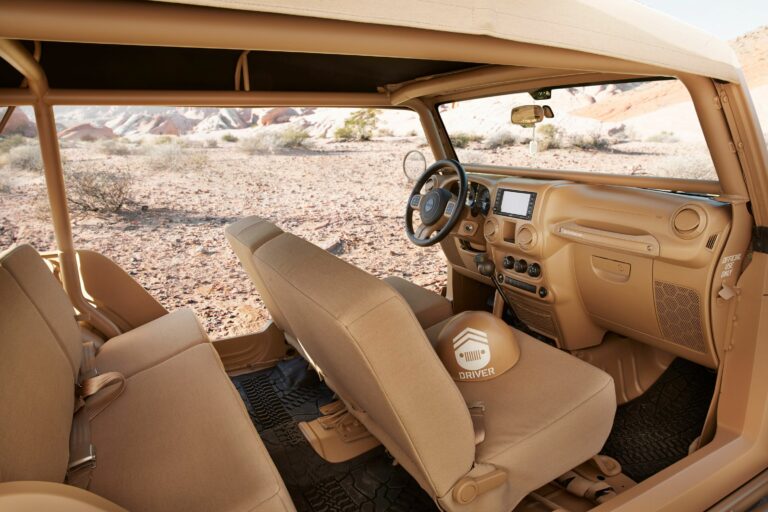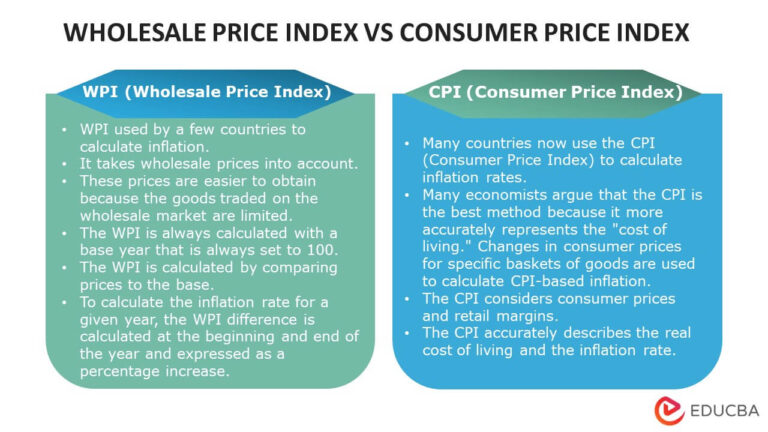Complete Jeep Engines For Sale: Your Ultimate Guide to Powering Up Your Rig
Complete Jeep Engines For Sale: Your Ultimate Guide to Powering Up Your Rig jeeps.truckstrend.com
The roar of a healthy engine, the feel of ample torque underfoot, and the confidence to tackle any terrain – these are the hallmarks of a well-powered Jeep. But what happens when your trusty powertrain falters, or you simply crave more grunt for your off-road adventures or daily commute? The answer often lies in Complete Jeep Engines For Sale. More than just a block of metal, a complete engine is a ready-to-install powerhouse, meticulously assembled with all essential components, designed to breathe new life into your beloved rig.
This comprehensive guide will delve into everything you need to know about purchasing a complete Jeep engine. Whether you’re replacing a tired motor, undertaking an ambitious engine swap, or restoring a classic, understanding the nuances of these vital components is paramount. We’ll explore the benefits, types, critical considerations, and the entire process from selection to installation, ensuring you make an informed decision that keeps your Jeep conquering trails for years to come.
Complete Jeep Engines For Sale: Your Ultimate Guide to Powering Up Your Rig
Why Consider a Complete Jeep Engine?
When faced with an engine issue, Jeep owners often weigh several options: rebuild the existing engine, purchase a "long block" (block, crank, rods, pistons, heads), or opt for a "complete" engine. While rebuilding can be cost-effective for minor issues, and long blocks offer a good foundation, choosing a complete engine presents a host of compelling advantages, especially for those seeking convenience, reliability, and reduced downtime.
The primary benefit of a complete engine is its turnkey nature. These units typically arrive with the cylinder heads, intake manifold, exhaust manifold, oil pan, valve covers, sensors, wiring harness, and often even essential accessories like the alternator, power steering pump, and A/C compressor already attached. This significantly reduces the labor involved in transferring components from your old engine, minimizing the chances of installation errors or missing parts.
Furthermore, complete engines, particularly new or remanufactured ones, often come pre-tested and with a warranty, offering crucial peace of mind. This mitigates the risks associated with used engines or the uncertainties of a self-rebuild. For those performing an engine swap, a complete crate engine designed for your specific Jeep model or a popular swap application (like a Hemi or LS) can drastically simplify the conversion process, providing a cohesive, engineered solution. Ultimately, choosing a complete engine translates to less time in the garage and more time on the trail.
Types of Complete Jeep Engines Available
The market for complete Jeep engines is diverse, catering to various needs, budgets, and performance aspirations. Understanding the different categories is crucial for making the right choice.

OEM Replacement Engines: These are direct factory replacements, designed to match the original specifications of your Jeep’s engine. They are ideal for restoring a vehicle to its original performance or replacing a failed engine without significant modifications. Examples include the iconic AMC 4.0L inline-six for older Wranglers (YJ, TJ) and Cherokees (XJ), or the 3.6L Pentastar V6 for newer JK/JL Wranglers and Gladiators. These often come as remanufactured units from reputable suppliers.
-
Remanufactured/Rebuilt Engines: This category offers an excellent balance of cost-effectiveness and reliability. Remanufactured engines are not simply repaired; they are completely disassembled, cleaned, inspected, and then rebuilt using new or reconditioned parts that meet or exceed OEM specifications. Critical components like pistons, bearings, and seals are replaced, and machining processes ensure all tolerances are within factory specs. They typically come with a substantial warranty, making them a very popular choice for reliable, like-new performance without the new engine price tag.
-
Crate Engines (Performance/Upgrade): For those seeking a significant power boost or undertaking a major engine swap, crate engines are the go-to option. These are brand-new, ready-to-run engines, often sold by manufacturers (like Mopar Performance, GM Performance) or specialized aftermarket builders. They range from powerful Hemi V8s (5.7L, 6.4L) designed for direct swaps into JK/JL Wranglers, to various GM LS-based V8s that are popular for custom builds due to their power, reliability, and aftermarket support. Crate engines for swaps usually come with specific wiring harnesses, ECUs, and sometimes even a complete "swap kit" to facilitate installation into a different chassis.
-
Used/Salvage Engines: While the most budget-friendly option, buying a used or salvage complete engine comes with the highest risk. These engines are typically pulled from wrecked vehicles and their history, mileage, and internal condition are often unknown. While some reputable salvage yards offer limited warranties, significant issues can arise after installation. This option is best considered only if you have the means to thoroughly inspect the engine (e.g., compression test, leak-down test) or are prepared for potential further repairs.


Key Factors to Consider Before Buying
Purchasing a complete Jeep engine is a significant investment. Careful consideration of several factors will ensure you get the right engine for your needs and avoid costly mistakes.
- Compatibility is King: The most critical factor is ensuring the engine is compatible with your specific Jeep model, year, and existing drivetrain (transmission, transfer case, axles). This includes bolt patterns for the transmission, engine mounts, and how it integrates with your vehicle’s computer (ECU) and wiring harness. For direct replacements, match the engine code (e.g., 4.0L, 3.6L). For swaps, confirm that specific swap kits are available for your Jeep and the chosen engine.
- Condition and Source: Decide between new, remanufactured, or used. New offers peak reliability but highest cost. Remanufactured provides excellent value and warranty. Used is cheapest but carries significant risk. Always buy from reputable sellers, whether it’s a certified remanufacturer, a well-known crate engine supplier, or a salvage yard with a strong reputation and clear return policy.
- Budget Beyond the Engine: Factor in not just the engine’s price but also shipping costs, potential core charges (for remanufactured units), installation labor (if not DIY), fluids, new gaskets, and any unforeseen expenses. For engine swaps, remember to budget for swap kits, custom fabrication, exhaust modifications, and potentially new cooling systems or fuel systems.
- Emissions Compliance: This is paramount, especially for engine swaps. Many states have strict regulations requiring swapped engines to be newer than the vehicle, retain all original emissions equipment from the donor vehicle, and pass a visual and functional emissions test. Always check your local and state laws before committing to a swap.
- Performance Needs: Are you replacing a stock engine for daily driving, or do you need significantly more power for towing, rock crawling, or high-speed desert running? Your intended use will dictate the engine type, size, and modifications (e.g., forced induction, performance camshafts).
- What’s Included? For a "complete" engine, clarity on what exactly is part of the package is vital. Confirm if it includes the intake manifold, exhaust manifolds, throttle body, fuel injectors, sensors, wiring harness, ECU, flywheel/flexplate, and all accessory components (alternator, power steering pump, A/C compressor). The more included, the easier the installation.
The Buying Process: A Step-by-Step Guide
Navigating the market for complete Jeep engines can be daunting. Follow these steps to ensure a smooth and successful purchase:
- Define Your Needs and Research: Clearly identify why you need a new engine (replacement vs. upgrade), your budget, and your specific Jeep model and year. Research compatible engine options, read reviews, and explore forums dedicated to Jeep modifications or repairs.
- Source Reputable Sellers: Look for established engine suppliers, specialized Jeep parts dealers, or direct manufacturers of crate engines. Online marketplaces can be useful but require extra diligence. Avoid sellers with poor reviews or vague descriptions.
- Verify Engine Details and Inclusions: Once you’ve found potential candidates, contact the seller to confirm every detail. Get the engine code, mileage (for used), and a precise list of all components included. Request clear, high-resolution photos or videos of the actual engine you will receive. For remanufactured units, inquire about the rebuilding process and quality control.
- Understand Warranty and Return Policies: This is non-negotiable. A strong warranty (typically 1-3 years for new/remanufactured) offers protection against defects. Understand the return policy in case the engine arrives damaged or is not as described. Document everything.
- Inspect (if possible): If buying locally or from a salvage yard, physically inspect the engine. Look for signs of damage, missing parts, leaks, or rust. For used engines, ask for a compression test or leak-down test results.
- Arrange Shipping and Delivery: Confirm shipping costs, insurance, and estimated delivery times. Most complete engines are shipped via freight, requiring a forklift or loading dock at the delivery point, or arranged pickup at a freight terminal. Inspect the engine immediately upon arrival for any shipping damage before signing the delivery receipt.
Installation & Post-Purchase Considerations
Once your complete engine arrives, the journey isn’t over. Proper installation and post-purchase care are crucial for longevity and performance.
- Professional vs. DIY Installation: Installing a complete engine is a complex task requiring specialized tools, mechanical knowledge, and often a vehicle lift. While experienced DIYers can tackle it, many choose professional installation at a trusted mechanic or Jeep specialist shop. For engine swaps, professional installation is almost always recommended due to the complexity of wiring, ECU tuning, and fabrication.
- Required Tools and Knowledge: If going the DIY route, ensure you have a full set of mechanics tools, an engine hoist, an engine stand, torque wrenches, and a detailed service manual for your specific Jeep model. Familiarity with wiring diagrams and fluid systems is also essential.
- Break-in Period: New and remanufactured engines require a specific break-in procedure. This typically involves varied RPM driving, avoiding sustained high RPMs or heavy loads for the first few hundred miles, and an early oil change. Follow the manufacturer’s recommendations meticulously to ensure proper ring seating and component longevity.
- Tuning and ECU Programming: For engine swaps, custom ECU tuning is almost always necessary to ensure the engine runs optimally, communicates correctly with your Jeep’s systems, and meets emissions standards. Even for direct replacements, a scan tool might be needed to clear codes or perform basic programming.
- Legal Aspects: Reiterate the importance of emissions compliance for engine swaps. Registering a vehicle with a swapped engine can be a complex process depending on your state’s DMV requirements. Always ensure all legal obligations are met.
Potential Challenges and Solutions
Even with careful planning, challenges can arise when dealing with complete Jeep engines. Being aware of them allows for proactive solutions.
- Compatibility Issues: Despite research, sometimes a minor component doesn’t fit or a sensor connection is different.
- Solution: Double-check part numbers, consult with the seller or a Jeep specialist, and be prepared for minor modifications or component swaps. For complex swaps, custom fabrication might be necessary.
- Hidden Problems (Used Engines): A used engine might have internal issues that aren’t apparent until installed.
- Solution: Always buy from reputable sources with a clear return policy. If possible, perform pre-purchase inspections like compression tests. Factor in a contingency budget for potential post-installation repairs.
- Installation Complexity: The job can be more involved than anticipated, especially for first-time engine installers.
- Solution: Don’t hesitate to seek professional help if you get stuck. Refer to detailed service manuals, watch instructional videos, and join online forums for advice.
- Budget Overruns: Unforeseen costs can quickly inflate the project budget.
- Solution: Always build in a 10-20% contingency fund. Shop around for parts, and get multiple quotes for professional labor.
- Shipping Damage: Engines are heavy and can be damaged in transit.
- Solution: Purchase shipping insurance. Thoroughly inspect the engine upon delivery before signing off. If damage is found, document it immediately with photos and notes on the delivery receipt, and contact the shipper and seller.
Complete Jeep Engines For Sale: Representative Price Table
Please note: These prices are approximate estimates and can vary significantly based on the engine’s condition (new, remanufactured, used), specific year/model, included accessories, supplier, warranty, and current market demand. Core charges for remanufactured engines (typically $500-$1,000) are usually extra but refundable upon return of your old engine. Engine swap kits are almost always sold separately from the engine itself.
| Engine Type/Model (Common for Jeeps) | Condition | Typical Price Range (USD) | Key Inclusions/Notes | Target Vehicle Models (Common) |
|---|---|---|---|---|
| AMC 4.0L I6 | Remanufactured | $2,500 – $4,500 | Complete long block with intake/exhaust manifolds, valve cover, oil pan, sensors. Often includes basic accessories. Strong warranty. | YJ, TJ, XJ, ZJ |
| Chrysler 3.6L Pentastar V6 | Remanufactured | $3,500 – $6,000 | Complete drop-in engine. May or may not include ECU/harness depending on supplier. Strong warranty. | JK, JL, JT, KL, WK2 |
| GM LS-based (e.g., 5.3L Vortec) | Used (low mileage) | $2,000 – $4,000 | Engine only (long block plus some accessories like intake). Requires full swap kit (mounts, transmission adapter, wiring harness, ECU) purchased separately. | Common for TJ, XJ, JK swaps |
| GM LS-based (e.g., 5.3L/6.2L) | Crate Engine (New) | $6,000 – $15,000+ | Brand new, often includes specific wiring harness, ECU, sometimes front-end accessory drive. Designed for custom builds/swaps. Higher power. | Custom builds/swaps |
| Mopar 5.7L Hemi V8 | Remanufactured | $4,000 – $7,000 | Often includes intake, throttle body, sensors. Popular for JK/JL swaps. | WK, XK, JK/JL swaps |
| Mopar 5.7L Hemi V8 | Crate Engine (New) | $8,000 – $15,000+ | Brand new, performance-oriented. Often sold with a complete "engine swap kit" for specific Jeep models, including wiring, ECU, mounts, transmission adapters. | JK/JL swaps |
| Mopar 6.4L Hemi V8 | Crate Engine (New) | $10,000 – $20,000+ | High-performance option. Usually part of a comprehensive engine swap kit. | JK/JL swaps |
| AMC 2.5L I4 | Remanufactured | $2,000 – $3,500 | Complete long block with basic accessories. For older 4-cylinder models. | YJ, TJ, XJ |
Frequently Asked Questions (FAQ)
Q: What exactly does "complete engine" mean?
A: A "complete engine" typically refers to an engine assembly that includes the cylinder heads, intake and exhaust manifolds, oil pan, valve covers, and often all or most external accessories such as the alternator, power steering pump, A/C compressor, throttle body, fuel injectors, sensors, and even a wiring harness and ECU. It’s designed to be a "drop-in" solution, minimizing the transfer of components from your old engine.
Q: Is it better to buy a new, remanufactured, or used engine?
A: It depends on your budget, risk tolerance, and intended use.
- New: Highest cost, highest reliability, full warranty. Ideal for long-term peace of mind.
- Remanufactured: Excellent balance of cost and reliability. They are thoroughly rebuilt to OEM specs, often come with a substantial warranty (1-3 years), and offer like-new performance at a lower price than new.
- Used: Cheapest, but highest risk. Unknown history, mileage, and no or very limited warranty. Only recommended if thoroughly inspected by a professional or if you’re prepared for potential hidden issues.
Q: Do complete engines come with a warranty?
A: New and remanufactured complete engines almost always come with a warranty, typically ranging from 1 to 3 years or a specified mileage. Used engines rarely come with a warranty, or it’s a very limited, short-term guarantee. Always clarify warranty terms before purchasing.
Q: Can I install a different engine type (e.g., a Hemi into a Wrangler JK)?
A: Yes, this is known as an "engine swap." It’s a popular modification for those seeking significantly more power. However, it requires specialized engine swap kits (including motor mounts, transmission adapters, cooling system upgrades, fuel system modifications, and dedicated wiring harnesses and ECU tuning). Engine swaps are complex and often require professional installation.
Q: What’s the typical lead time for a complete engine delivery?
A: This varies greatly. In-stock remanufactured engines or popular crate engines can often ship within a few business days. Custom-built engines or those that are temporarily out of stock might have lead times of several weeks to a few months. Always confirm the estimated delivery time with the seller.
Q: How do I ensure compatibility with my Jeep’s transmission?
A: Most engines have specific bolt patterns for mating with transmissions. For direct OEM replacements, the engine will be designed to bolt up to your factory transmission. For engine swaps, you will almost certainly need an adapter plate to mate the new engine to your existing transmission, or you may need to swap the transmission as well. Always verify compatibility with the seller or a professional mechanic before purchase.
Q: What about emissions and legality for engine swaps?
A: This is a critical concern. Emissions laws vary significantly by state and even county. Generally, for an engine swap to be street legal, the swapped engine must be newer than the vehicle it’s going into, retain all of its original emissions control equipment from the donor vehicle, and pass a visual inspection and emissions test. Failure to comply can lead to registration issues or fines. Always research your local and state regulations thoroughly before undertaking an engine swap.
Conclusion
The decision to purchase a complete Jeep engine is a significant step towards revitalizing your vehicle’s performance and extending its lifespan. Whether you’re replacing a worn-out workhorse or embarking on an exhilarating power upgrade, the convenience, reliability, and integrated nature of a complete engine offer a compelling solution.
By carefully considering the type of engine that suits your needs, meticulously vetting sellers, understanding what’s included, and planning for the installation, you can navigate this process with confidence. Remember to prioritize compatibility, budget wisely, and never overlook the importance of a solid warranty and adherence to local regulations, especially for engine swaps. With the right complete engine, your Jeep will be ready to tackle new adventures, delivering the power and dependability you expect from a true off-road icon.




